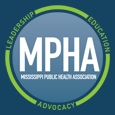Keywords
cortisol, alpha-amylase, sleep, depression, anxiety
Document Type
Research Studies
Abstract
Background: Symptoms of menopause include inadequate sleep, depression, and anxiety. Studies of healthy aging frequently use self-report tools that are unverified by objective measures.
Purpose: To investigate the correlation between self-report measures of sleep or affect and salivary biomarkers in a small (n=32) sample of post-menopausal women.
Methods: Salivary cortisol and a-amylase were quantified by laboratory tests. Self-report data included hours of sleep and Patient-Reported Outcomes Measurement Information System (PROMIS®) tools for sleep disturbance, anxiety, and depression. Correlation analyses were conducted between self-reported measures and biomarker concentrations.
Results: No statistically significant correlations were found between cortisol (a biomarker for stress), and PROMIS® T-scores standardized against a nationwide reference population for sleep disturbance (r=˗0.145;p=0.26), anxiety (r=˗0.047;p=0.72), depression (r=0.028;p=0.83), nor self-reported hours of sleep (r=˗0.009;p=0.94). Non-significant correlations were also obtained for a-amylase, a biomarker associated with quality of sleep, and sleep disturbance (r=0.221;p=0.08), anxiety (r=˗0.009;p=0.94), or depression (r=˗0.022;p=0.87) and hours of sleep (r=˗0.166;p=0.19). Significant correlations were observed between hours of sleep and sleep disturbance (r=0.517;pr=˗0.252;p=.048), and depression (r=0.321;p =0.012).
Conclusion: Self-report measures are poor proxies for objective biomarker data in this study, but expected correlations between self-report measures exist. Further study is needed with a larger and more diverse sample.
Recommended Citation
Hiser, L. M.,
Arrant, K.,
Lee, J. S.,
&
Zhang, L.
(2024). Association of Self-Report Measures With Salivary Biomarkers in Post-Menopausal Women.
Journal of Public Health in the Deep South, 4(1), 2.
DOI: https://doi.org/10.55533/2996-6833.1081

